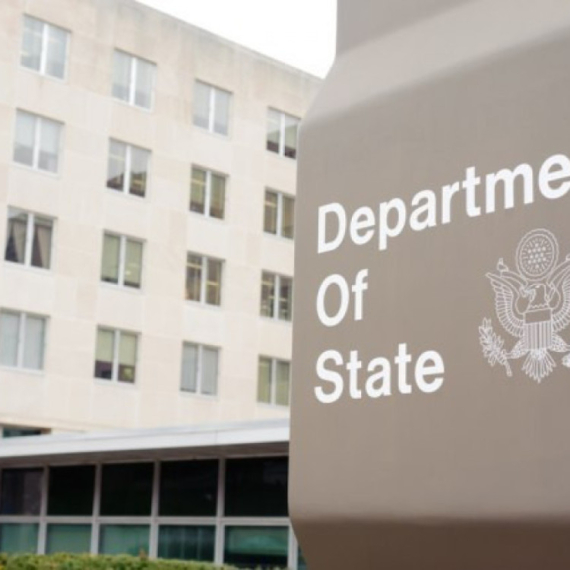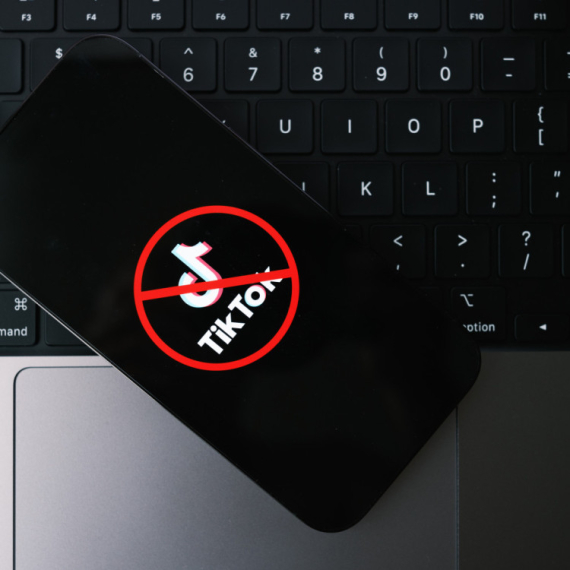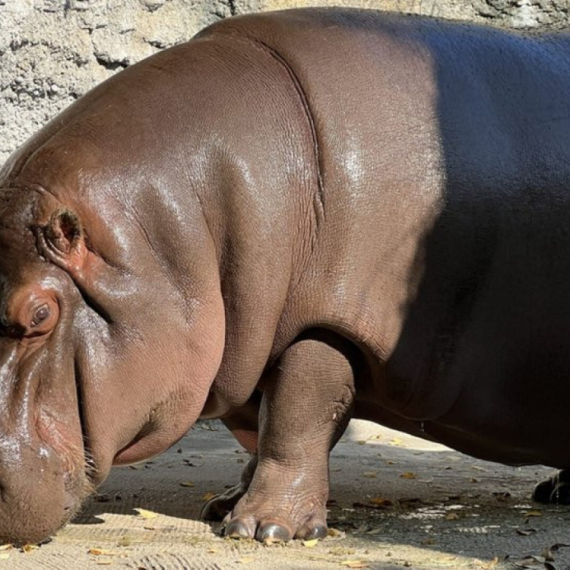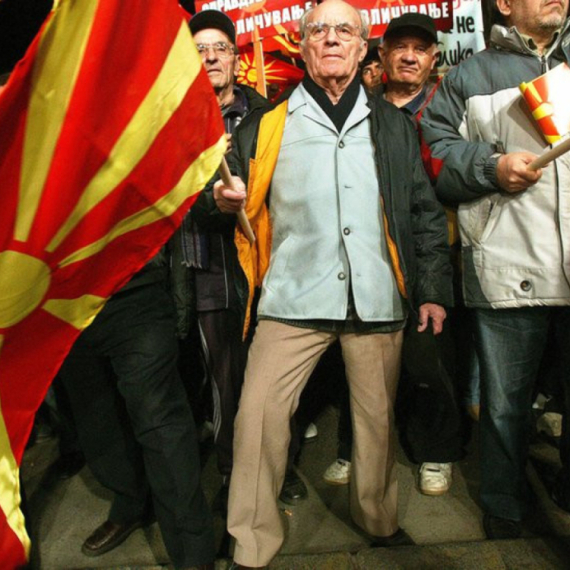"Aflatoxin affair to cost Serbia hundreds of millions"
The presence of aflatoxins in milk will cost Serbia hundreds of millions of euros, because the government failed to react in time, an expert says.
Tuesday, 26.02.2013.
15:04

BELGRADE The presence of aflatoxins in milk will cost Serbia hundreds of millions of euros, because the government failed to react in time, an expert says. "The Ministry (of Agriculture) is doing everything it is supposed to now, but the question is why it did not do this sooner," agricultural economist Goran Zivkov said, and added that appropriate steps should have been taken as soon as aflatoxins were detected in corn last fall. "Aflatoxin affair to cost Serbia hundreds of millions" Some farmers "showed more knowledge than the government," as they separated the healthy from the contaminated corn, Zivkov said at a forum on the possibilities and limitations of Serbian agriculture, organized at Tanjug's press center by the Konrad-Adenauer Foundation and Business Info Group. Zivkov claims that the damages would have been much lower if the reaction had come sooner - in September it would have totaled EUR 1 million, and in December EUR 10 million. Asked whether milk and meat in Serbia are safe for consumption, Zivkov said he does not know and does "not have X ray eyes," adding that everyone should decide for themselves, which he did in November when he stopped buying Serbian milk and cheese. Representatives of the Ministry of Agriculture and the Institute of Agricultural Economics on the other hand said food in Serbia was completely safe and everything suspicious has been pulled from the shelves. Danilo Golubovic, a state secretary with the Ministry of Agriculture, said the government did everything it was supposed to, as soon as the problem with aflatoxins was detected. He said extreme cases are possible anywhere in the world, such as the horse meat scandal in the EU, noting that the important things are control, monitoring and efficiency. He said the biggest problem is the discrepancy between the rulebook on animal feed and the one on milk and dairy products, since the former allows for a level of aflatoxins ten times that which is legal in the EU. The focus in the coming period will be on harmonizing these two documents, he added. He said there was no chance of meat being contaminated, since this would require a quantity of aflatoxins 500 times the legal limit and several years of using contaminated animal feed. Drago Cvijanovic, the director of the Institute of Agricultural Economics, said aflatoxins did not appear in Serbia yesterday but have been around for the past 30 years or more, and the whole affair has, in his opinion, been politicized. Cvijanovic concluded that everything notwithstanding, Serbia still consumes healthy food, but something like can always happen. (Tanjug) Minister again accuses GMO lobbyists Meanwhile, Agriculture Minister Goran Knezevic has said that the aflatoxin affair was launched in order to cause damage to cattle breeders and import food with genetically modified organisms (GMO), but added that the government will not let Serbian farmers be destroyed. "I bear responsibility, but not even Superman would resolve everything in six months," Knezevic told Belgrade-based daily Vecernje Novosti. The minister stressed that all milk on sale is completely safe, adding that he is absolutely confident that that aim was to import GMO food in the country once everything is destroyed. Knezevic called on everyone in the country to wait calmly for the results of superanalysis of samples of milk that have been sent to the Netherlands, and said that milk on sale in Serbia can be purchased and consumed without any fear. According to the minister, there is no carcinogenic milk in Serbia, and the initiators of the affair want either the fall of the Serbian government or its capitulation in the field of the only branch of the economy that has trade surplus - agriculture. Knezevic also pointed out that the ultimate goal of these "political attacks" is for the feed, primarily maze and soybean produced in Serbia, to be declared carcinogenic, which would provide an excuse for GMO animal feed to be cultivated and imported. He added that it is well-known that the GMO lobby is among the most powerful ones in the world, and that it was not any problem for it to engage certain political and economic structures and media in Serbia. Knezevic explained that inspection did not withdraw 50 kinds of milk from the market, but rather 50 production lines. "The withdrawn milk is neither toxic nor carcinogenic - it is absolutely the same as the milk we drank three or 13 years ago. The only question is whether it is within the regulations imposed on producers by the Ministry of Agriculture in 2011, when GMO lobbyists were at its head," he concluded. Tanjug Vecernje novosti
"Aflatoxin affair to cost Serbia hundreds of millions"
Some farmers "showed more knowledge than the government," as they separated the healthy from the contaminated corn, Živkov said at a forum on the possibilities and limitations of Serbian agriculture, organized at Tanjug's press center by the Konrad-Adenauer Foundation and Business Info Group.Živkov claims that the damages would have been much lower if the reaction had come sooner - in September it would have totaled EUR 1 million, and in December EUR 10 million.
Asked whether milk and meat in Serbia are safe for consumption, Živkov said he does not know and does "not have X ray eyes," adding that everyone should decide for themselves, which he did in November when he stopped buying Serbian milk and cheese.
Representatives of the Ministry of Agriculture and the Institute of Agricultural Economics on the other hand said food in Serbia was completely safe and everything suspicious has been pulled from the shelves.
Danilo Golubović, a state secretary with the Ministry of Agriculture, said the government did everything it was supposed to, as soon as the problem with aflatoxins was detected.
He said extreme cases are possible anywhere in the world, such as the horse meat scandal in the EU, noting that the important things are control, monitoring and efficiency.
He said the biggest problem is the discrepancy between the rulebook on animal feed and the one on milk and dairy products, since the former allows for a level of aflatoxins ten times that which is legal in the EU. The focus in the coming period will be on harmonizing these two documents, he added.
He said there was no chance of meat being contaminated, since this would require a quantity of aflatoxins 500 times the legal limit and several years of using contaminated animal feed.
Drago Cvijanović, the director of the Institute of Agricultural Economics, said aflatoxins did not appear in Serbia yesterday but have been around for the past 30 years or more, and the whole affair has, in his opinion, been politicized.
Cvijanović concluded that everything notwithstanding, Serbia still consumes healthy food, but something like can always happen.
Minister again accuses GMO lobbyists
Meanwhile, Agriculture Minister Goran Knežević has said that the aflatoxin affair was launched in order to cause damage to cattle breeders and import food with genetically modified organisms (GMO), but added that the government will not let Serbian farmers be destroyed."I bear responsibility, but not even Superman would resolve everything in six months," Knežević told Belgrade-based daily Večernje Novosti.
The minister stressed that all milk on sale is completely safe, adding that he is absolutely confident that that aim was to import GMO food in the country once everything is destroyed.
Knežević called on everyone in the country to wait calmly for the results of superanalysis of samples of milk that have been sent to the Netherlands, and said that milk on sale in Serbia can be purchased and consumed without any fear.
According to the minister, there is no carcinogenic milk in Serbia, and the initiators of the affair want either the fall of the Serbian government or its capitulation in the field of the only branch of the economy that has trade surplus - agriculture.
Knežević also pointed out that the ultimate goal of these "political attacks" is for the feed, primarily maze and soybean produced in Serbia, to be declared carcinogenic, which would provide an excuse for GMO animal feed to be cultivated and imported.
He added that it is well-known that the GMO lobby is among the most powerful ones in the world, and that it was not any problem for it to engage certain political and economic structures and media in Serbia.
Knežević explained that inspection did not withdraw 50 kinds of milk from the market, but rather 50 production lines.
"The withdrawn milk is neither toxic nor carcinogenic - it is absolutely the same as the milk we drank three or 13 years ago. The only question is whether it is within the regulations imposed on producers by the Ministry of Agriculture in 2011, when GMO lobbyists were at its head," he concluded.


























































Komentari 11
Pogledaj komentare